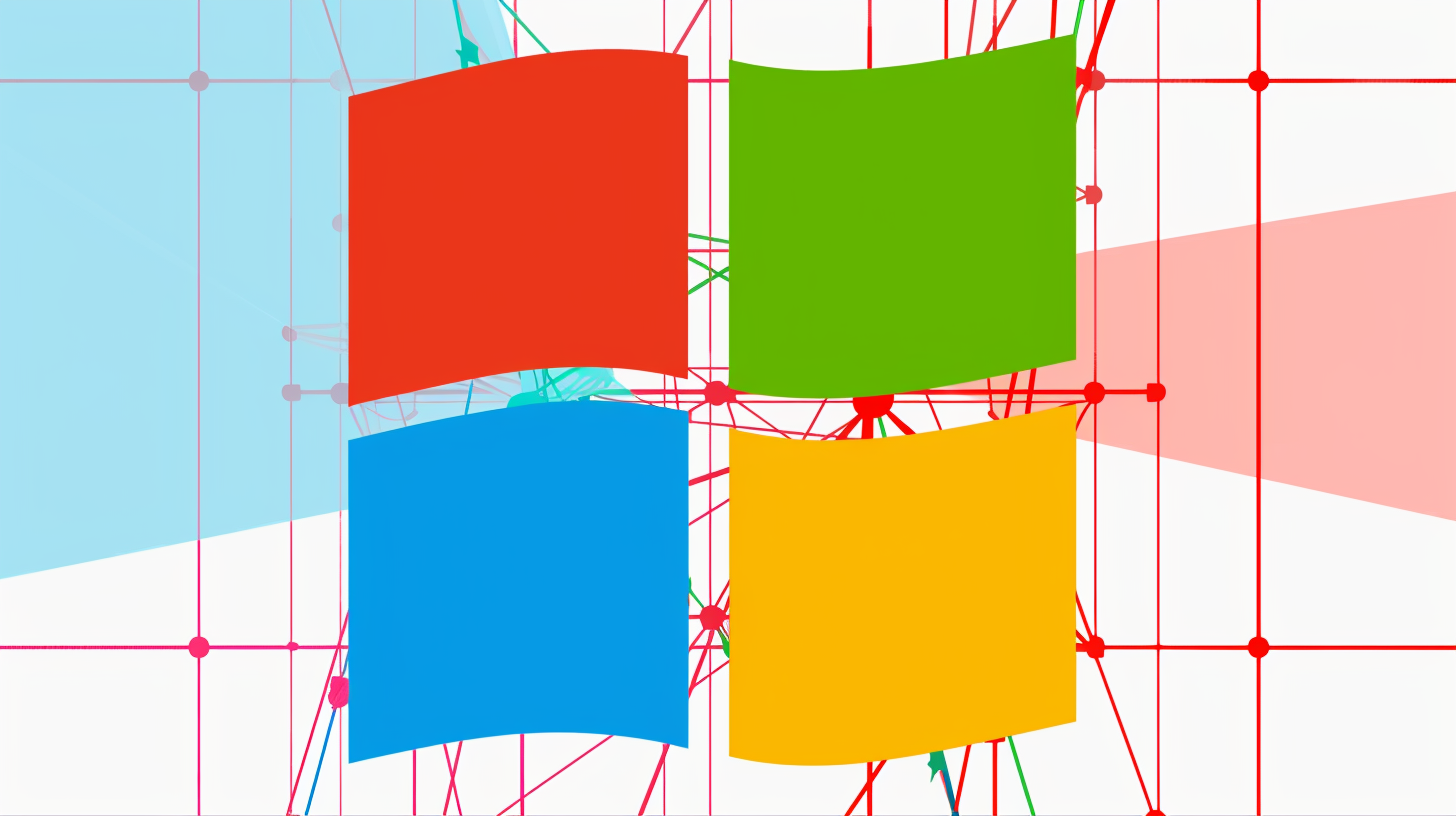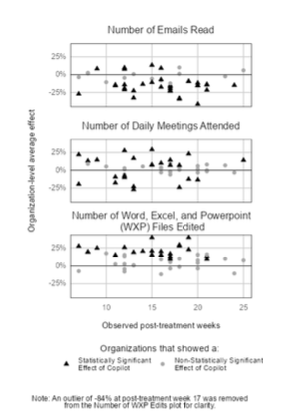AI boosts workplace productivity but effects vary by role, massive Microsoft study finds

A large-scale field study by Microsoft provides initial insights into the impact of generative AI on workplace productivity. The results indicate measurable improvements but also show differences across various roles and functions.
Microsoft has released findings from the largest controlled study to date on the effects of generative AI in the workplace. The field study involved over 6,000 employees from more than 60 companies using Copilot for Microsoft 365 in their daily work.

The results show that employees with access to Copilot read 11% fewer emails on average and spent 4% less time doing so, with reductions as high as 20-25% in some companies.
The impact on meetings was mixed, with some companies seeing an increase and others a decrease, possibly indicating that Copilot makes meetings both more efficient and effective.
Copilot users also created and edited 10% more documents, with heavy users seeing a 13% increase and some organizations experiencing a 25-30% increase.
Power users save up to 30 minutes a day
A supplementary survey of 31,000 employees in 31 countries found that 29% of AI users can be classified as "power users," reporting savings of more than 30 minutes per day through AI use.
The impact of Copilot varies by role and function, with customer service and sales employees reporting the largest productivity gains and legal professionals seeing smaller improvements.
The findings on cognitive load when using generative AI are particularly interesting. While activities like prompt engineering, iteration, and output evaluation require additional metacognitive effort, this effort can be reduced through measures such as improving users' metacognitive skills, reducing the demands of the tools themselves, improving the explainability of AI systems, and adaptability to users and tasks.
A study on Microsoft Copilot showed that users perceived tasks with AI assistance as less mentally demanding, stressful, and difficult, although this had no impact on the perceived difficulty of subsequent tasks.
Microsoft emphasizes that the results point to measurable productivity gains through generative AI in everyday work, while acknowledging that the effects can vary depending on context and usage. Further research will explore how companies can best promote the productive use of AI.
AI News Without the Hype – Curated by Humans
As a THE DECODER subscriber, you get ad-free reading, our weekly AI newsletter, the exclusive "AI Radar" Frontier Report 6× per year, access to comments, and our complete archive.
Subscribe nowAI news without the hype
Curated by humans.
- Over 20 percent launch discount.
- Read without distractions – no Google ads.
- Access to comments and community discussions.
- Weekly AI newsletter.
- 6 times a year: “AI Radar” – deep dives on key AI topics.
- Up to 25 % off on KI Pro online events.
- Access to our full ten-year archive.
- Get the latest AI news from The Decoder.